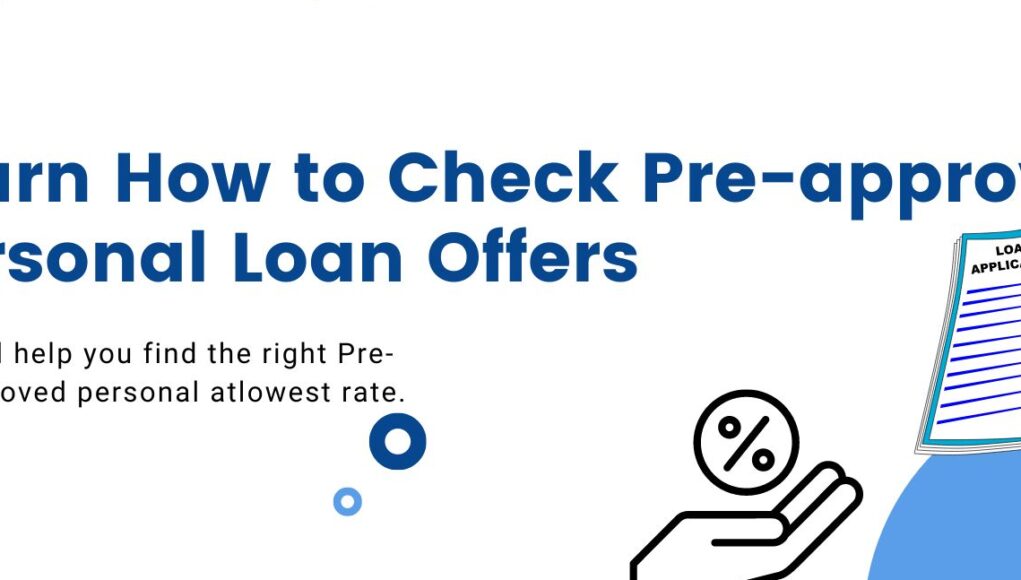Last Updated on March 10, 2024 by admin
Applying for pre-approval is an essential step in obtaining a pre-approved personal loan. And although it may seem to be splitting hairs, it is distinct from being officially accepted.
Pre-approval enables you to shop around for personal loans without affecting your credit score, but it is not a guarantee that you will be accepted. Here’s what you should know about the pre-approved personal loan.
What Exactly is Personal Loan Pre-approval?
A pre-approval is the first step in getting a personal loan approved. “It’s a good idea to go through a pre-approval procedure first to see where you stand,” says Trina Patel, financial guidance manager at Albert, a money-management software.
Lenders will run a soft credit check pre-approved offer when you search for loan choices and apply for pre-approval, which does not affect your credit. When you apply for a loan, a hard credit pull is performed, which may stay on your credit report for up to two years.
Obtaining a pre-approval is — and should always be — free of charge. Throughout pre-approval, lenders will examine your credit history, income, and other assets. According to Patel, their goal is to “evaluate how likely you are to repay the loan.”
If you are pre-qualified for pre-approved offers, the lender will give you an offer letter containing the loan amount, interest rate, and other details. If you accept the offer, you must go through the official application procedure, which includes presenting evidence such as pay stubs, identification, and your Social Security number.
How to Request Pre-approval?
In general, this is how to apply for a pre-approved personal loan:
- Fill out the pre-approval form on a lender’s website: You will be questioned about your income, job, and debt, but you will not be required to supply documentation.
- The lender performs a soft credit pull: The lender will examine your credit record, including your payment history, to determine if you are a reliable borrower.
- Check pre-approved offer: If you qualify for pre-approval, the lender will make you a personal loan offer that includes the maximum loan amount, interest rate, and all other loan details. Your application will be refused if you fail the soft credit check.
- Make a choice: You may accept or decline the pre-approval offer. Lenders vary on how long a pre-approval will continue, but it will most likely be no more than a month.
- Provide the following documentation: If you accept the offer, you will be required to give proof of your income, job, assets, and personal information, such as your Social Security number.
The application procedure for pre-approval is quite simple, but there are a few things to bear in mind while searching for and accepting a personal loan officer.
How to Obtain a Pre-Approved Personal Loan?
There are many stages to qualifying for a personal loan, the first of which is to ensure that it is appropriate for you. If you want to borrow money to renovate your home or purchase a vehicle, a home equity or auto loan may have a cheaper interest rate. Instead of unsecured personal loans based simply on your creditworthiness, these loans are secured by the property you want to fix up or the automobile you wish to purchase.
Although paying for a family trip or reducing debt falls within the purview of a personal loan, you may also want to consider a credit card with a 0% introductory APR. However, if you take it that way, be sure to pay off the debt before the 0% interest rate ends.
Considerations before Applying for a Personal Loan:
Before you start looking for loans or calculating how much you want to borrow, there are a few things you should think about:
- First, make sure you understand how loan providers describe the cost of a loan so you can ensure you can repay it. Many online calculators may assist you in calculating your total monthly payments; use them while browsing for loans.
- Though personal loans are often a low-cost method to borrow, you should not disregard alternative options. For example, if you are confident that you will be able to repay the loan soon, you may borrow against the equity in your home or charge a cost to a credit card.
What documents do I need to apply for a personal loan?
Each loan provider is unique and may need various documentation when you apply for a loan. The loan application will ask for your Social Security number, address, and income. To apply for a loan, you will typically require at least three documents:
- Identification documents include a driver’s license, passport, or state-issued ID card.
- Proof of your earnings. Pay stubs, tax returns, W-2s and 1099s, bank statements, or your employer’s contact information may be required. The loan provider may request bank records, 1099s, or tax returns if you work for yourself.
- Address verification For this, you may use a utility bill or your rental agreement. A mortgage statement, voter registration card, property tax receipt, or bank or credit card statement may suffice if you don’t have a mortgage statement.
Read more blogs on this website.




















